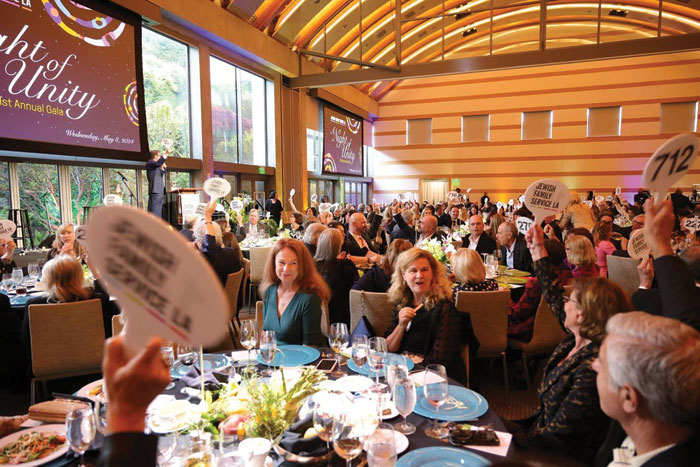 Photo from Wikimedia Commons.
Photo from Wikimedia Commons. I moved to Los Angeles in 1990, at the tail end of Tom Bradley’s extended tenure as mayor. Since then, I have watched his four successors — Richard Riordan, James Hahn, Antonio Villaraigosa and Eric Garcetti — each grapple with the most essential and frustrating aspect of that office: the utter lack of power possessed by the mayor of Los Angeles.
That is an exaggeration. LA’s top elected officeholder does appoint large numbers of city commissioners and other senior local government employees, and maintains a significant influence over the municipal budget. But the city’s founders deliberately set up a weak-mayor system of government that distributes responsibility to many different stakeholders, so mayors here have much less statutory authority than their colleagues in most of the nation’s other largest cities.
A successful L.A. leader’s greatest power comes from their effective use of the public platform to educate, motivate and leverage voter sentiment.
A successful L.A. leader’s greatest power instead comes from their effective use of the public platform that comes with their office to educate, motivate and leverage voter sentiment in support of their goals. That backing can then pressure the City Council, the County Supervisors and the region’s congressional and legislative delegations. But it requires the skill to commandeer the media’s cameras and microphones to reach the people of the city and lead them forward.
Riordan and Villaraigosa both used the bully pulpit zealously, relentlessly and occasionally annoyingly. But their ceaseless efforts to communicate with the public ultimately paid off, and both men ultimately accomplished many of their objectives. Garcetti has sought the spotlight less constantly, but achieved his greatest successes when his public presence was most noticeable. And Hahn struggled, never finding a way to convince Los Angeles voters or their platoons of elected representatives to follow him.
In the final days of this year’s mayoral campaign, it appears that neither Karen Bass or Rick Caruso has yet mastered the art of mass public persuasion. Both are saying the right things, emphasizing the most notable aspects of their respective biographies and laying out multi-point plans on crime, homelessness, and other issues. But neither has broken through to the voters in a compelling or captivating way, even at a time when the city thirsts for new leadership and anguishes over how to move forward.
This is not intended as a criticism of either candidate. Both have accomplished admirable successes in their careers and both have the potential to be excellent mayors (albeit in extraordinarily different ways). But neither has ever been forced to rely on a public megaphone as their primary communications tool: both are still in the process of learning that skill.
Bass has compiled a commendable series of legislative accomplishments over her years in Sacramento and Washington, but she has been most successful as a behind-the-scenes negotiator rather than as an out-front speechifier. Caruso has built an estimable business empire that has often relied on developing public support, but his best work was also usually a result of one-on-one conversations and small group meetings. Both have achieved their goals just outside the public spotlight rather than at the center of it.
Those are not necessarily flaws. It’s entirely possible that one of them will be able to pressure reluctant Council members to support their agendas in less demonstrative ways. But doing so without the cudgel of public opinion is much more difficult.
It’s also entirely possible that the winner will grow into this role. Riordan was painfully shy before moving from the private sector into elective office. Villaraigosa’s legislative history in Sacramento and City Hall relied more on private negotiations behind closed doors than electrifying stemwinders from the podium. But both stepped up once they took office.
There is a constitutional requirement that we elect a mayor every four years. But there is no similar requirement that we elect an inspirational figure to stir our souls. I have spent this year watching Bass and Caruso trying out their public voices — with mixed results. I’ll cast my ballot for the candidate who I think is more likely to learn to use that bully pulpit to rally us behind their leadership. But neither of them has demonstrated that talent yet.
Dan Schnur is a Professor at the University of California – Berkeley, USC and Pepperdine. Join Dan for his weekly webinar “Politics in the Time of Coronavirus” (www.lawac.org) on Tuesdays at 5 PM.






















 More news and opinions than at a Shabbat dinner, right in your inbox.
More news and opinions than at a Shabbat dinner, right in your inbox.